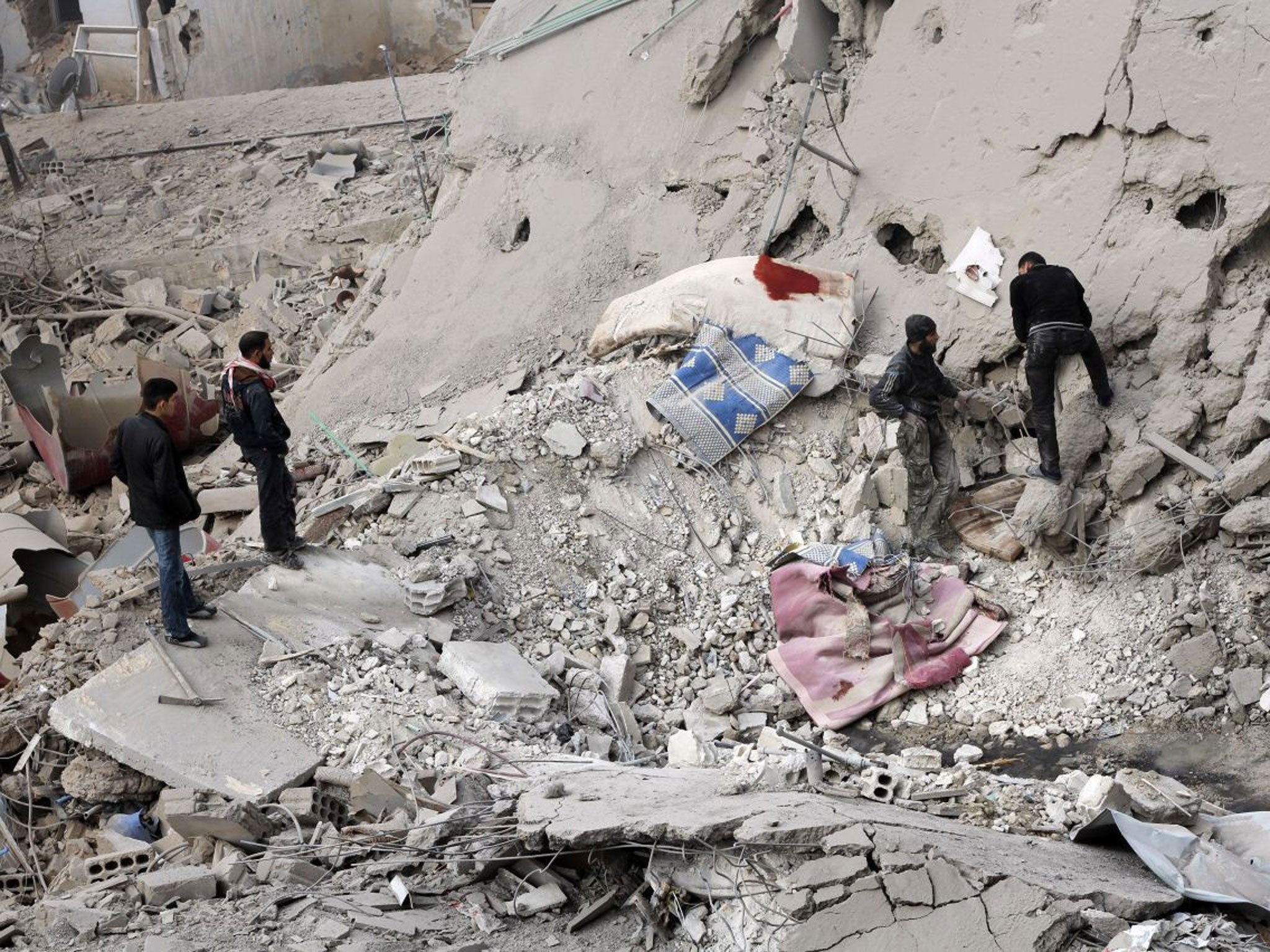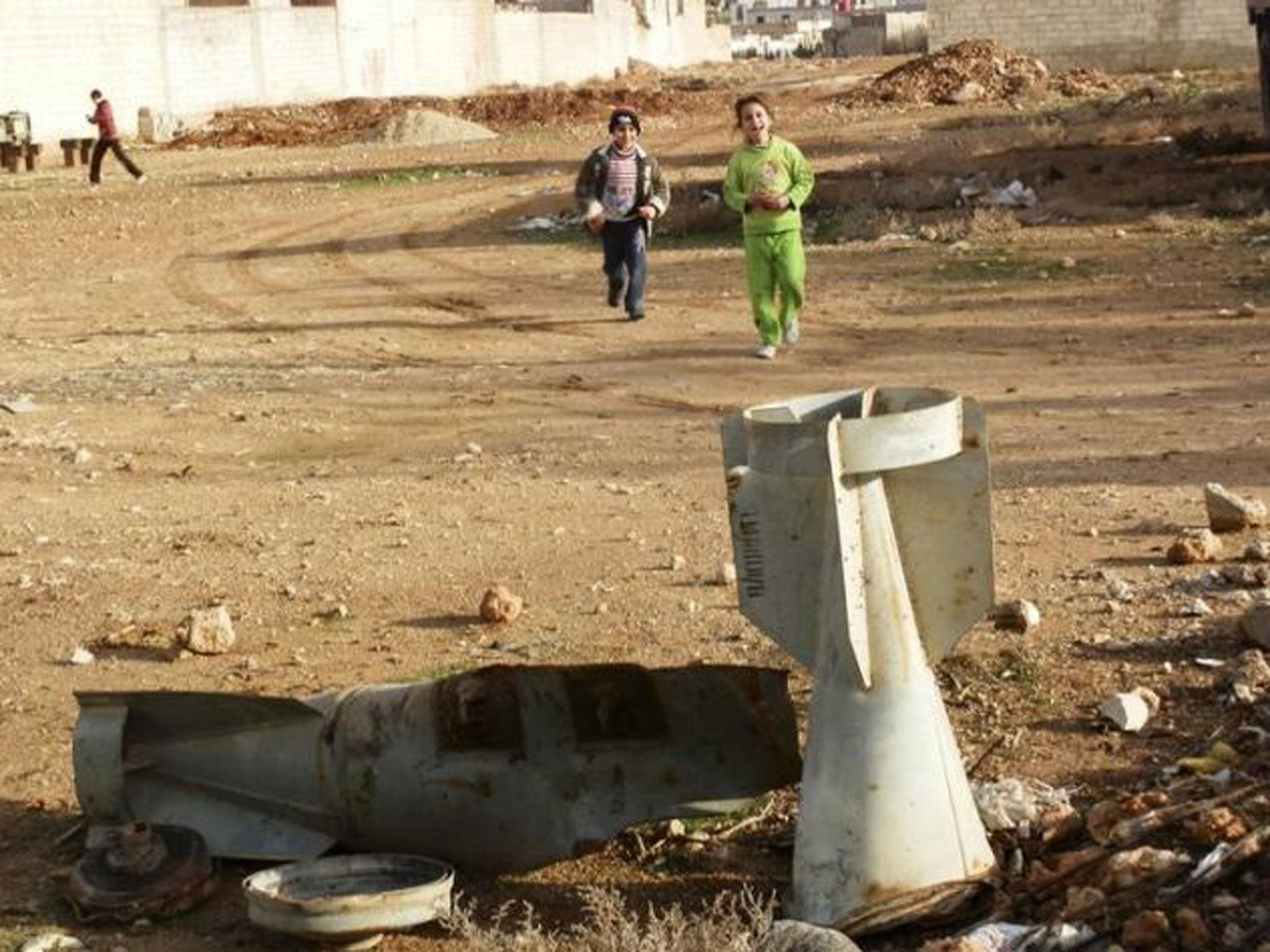Syria: After three years of horror, the West's kneejerk peaceniks have some explaining to do
Inaction can be just as bad as intervention

Your support helps us to tell the story
From reproductive rights to climate change to Big Tech, The Independent is on the ground when the story is developing. Whether it's investigating the financials of Elon Musk's pro-Trump PAC or producing our latest documentary, 'The A Word', which shines a light on the American women fighting for reproductive rights, we know how important it is to parse out the facts from the messaging.
At such a critical moment in US history, we need reporters on the ground. Your donation allows us to keep sending journalists to speak to both sides of the story.
The Independent is trusted by Americans across the entire political spectrum. And unlike many other quality news outlets, we choose not to lock Americans out of our reporting and analysis with paywalls. We believe quality journalism should be available to everyone, paid for by those who can afford it.
Your support makes all the difference.This week, while the eyes of the world were fixed on Crimea, the conflict in Syria reached another gruesome milestone. Tuesday marked three years since the Syrian government of Bashir al Assad opened fire on anti-government protesters, and what was for a while expected to be a relatively short conflict is now a bloody stalemate with no end in sight.
At least 150,000 people have been killed since the war began and over three million people have fled the country. 42 percent of all Syrians - more than the entire population of New York City - have fled their homes. On average 136 people a day are being killed.
This isn’t ‘collateral damage’ either, to use the ugly euphemism. This is the result of a deliberate war being waged against the civilian population of Syria by the thuggish Ba’athist regime. The Syrian government’s position is to make life for those living in opposition areas as difficult as possible. This is why it has been bombing and shelling civilians, denying them access to UN-ordered cross-border assistance and blocking vaccination efforts in opposition held areas. As Kenneth Roth of Human Rights Watch has put it, part of Assad’s strategy has been to target schools and hospitals and “all of those things which make life liveable”.
Syria has essentially become a damage limitation exercise; and one that we in the West appear to have entirely lost interest in. Joseph Stalin once said that while a single death may be a tragedy, a million is a mere statistic. This is what Bashar al Assad almost certainly now believes, for three years on from Syrian government forces firing on protesters conflict fatigue has firmly set in in the West. Six months after a punitive military strike against Assad was mooted in our own parliament the conflict has dropped off the political agenda entirely. Indeed, if opinion polls are anything to go by then Labour’s decision to use the Commons vote to squash the prospect of military intervention was wildly popular, as is the coalition’s policy of effectively pulling up the drawbridge on fortress Britain to all but a handful of Syrian asylum seekers. The Ukipification of British politics, in other words: forget about the foreigners, we have our own ‘problems’.

And yet whether we like it or not we share at least some of the responsibility for what’s happened in Syria. We condemn our politicians for the debacle in Iraq, yet if we were consistent we would be just as damning of those leaders who have failed to act in the face of bloody slaughter in Syria. The carnage in places like Fallujah rightly discredited those gung-ho enough to believe that parliamentary democracy could be transplanted onto societies from the hatch of a B52 Bomber. As the French writer Pascal Bruckner has put it, people who “hope to see local versions of the parliament in Westminster established in Kabul, Riyadh, Algiers, and Moscow will have to be patient and learn to accept necessity”. Yet despite all of that, the bloodshed in Syria demonstrates that inaction is often just as bad as intervention on the side of the aggressor and against the victim. Syria is, to put it bluntly, the anti-interventionist’s Iraq.
This isn’t a particularly novel observation. There are plenty of examples of unnecessary and bloody Western intervention; but just as many instances where enormous numbers of people have needed to be rescued because the consequences of doing nothing have been too atrocious to contemplate. Reeling off the casualties of war without accepting any responsibility for what happens as a result of inaction is simply to stop thinking at the point where one’s worldview jars with reality.
After the horrible lesson of Iraq it’s easy to rail against the idea that military intervention could ever have a positive outcome. But such a black and white interpretation of history means erasing from memory the experiences of Bosnia and Rwanda. Tony Blair will forever be hounded by placard-wielding protesters for taking the country to war with Saddam Hussein, but John Major was prime minister at the time of the infamous Srebrenica massacre in 1995, Europe’s worst war crime since the Second World War. At the time Britain pursued a policy that would have been music to any anti-war activist’s ears: we sat, arms self-righteously folded, while 8,000 Bosnian Muslims from the town of Srebrenica were rounded up and killed by the Bosnian Serb army under the command of Ratko Mladic. NATO did eventually intervene to stop the killing, but in the face of much resistance from the Major government, where little Englander Toryism cautioned against the creation of a ‘level killing field’.
Robert Hunter, the US ambassador to NATO from 1993 to 1998, believes the government of John Major was partly to blame for the massacre for obstructing intervention by the UN or NATO. “The failure of NATO to reach agreement on serious military action,” Mr Hunter says, “can be attributed to the efforts of one allied nation: Great Britain.”
Armchair critics of the intervention in Afghanistan might also reflect on some of the achievements that have only been possible because of the 2001 invasion. According to the Washington Times, 900,000 Afghan children were enrolled in school in 2001, virtually none of them girls. Today the number is close to eight million, around a third of them girls. Life expectancy in the country has also risen from 42 years to 62, and the child-mortality rate has fallen from 172 to 97 per 1,000 live births. We hear a lot of pejorative comments about ‘armchair warriors’, but it’s just as easy to fire off smug missives about a ‘calamitous war’ from the comfort of a warm bed with a full stomach in a liberal democracy. It isn’t your daughter/sister/wife that’s going to be denied an education by a Kalashnikov-wielding ideologue, after all.
Britain will play no further part in resolving the conflict in Syria because, as in the United States, there is simply no appetite for putting military pressure on Assad to bring him to the negotiating table. The best thing anyone concerned with the plight of the Syrians can do at this point is lobby the British government to accept as many refugees from the conflict as possible.
That said, while the death toll in Syria creeps steadily towards 200,000, we should be quite clear about something: it isn’t only hawks and Neo-Cons who have some explaining to do. Those willing to turn away when confronted with human catastrophes like Syria should also be held to account.
Join our commenting forum
Join thought-provoking conversations, follow other Independent readers and see their replies
Comments